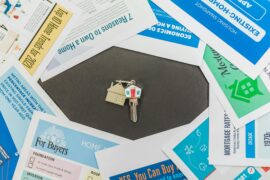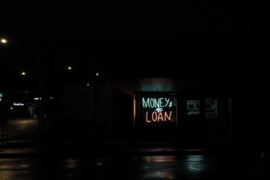This article may contain references to products or services from one or more of our advertisers or partners. We may receive compensation when you click on links to those products or services. Nonetheless, our opinions are our own.
When you’re drowning in debt, it can feel like there’s no way out. I’ve been there myself, staring at a pile of bills, dodging phone calls, and barely making a dent with minimum payments. If you’re in that spot, you might be thinking about debt settlement. For some people, it’s a lifeline; for others, it’s not the best fit – it really depends on your situation.
Before you decide anything, it helps to understand how debt settlement actually works. There are some solid advantages, but there are also risks. So let’s walk through the basics, and I’ll share what I’ve learned along the way!
What Is Debt Settlement?
Debt settlement is when you or a company working on your behalf negotiates with your creditors to settle your debt for less than what you owe. It’s mostly used for unsecured debts, like credit cards, personal loans, or medical bills.
If you’re welcome with a debt settlement company, instead of making your usual payments to each creditor, you start putting money into a separate bank account each month. Once there’s enough saved, the debt settlement company reaches out to your creditors and tries to strike a deal. If they accept, that debt is considered resolved – even if you paid far less than the original balance.
There are many companies that offer debt settlement, but it’s incredibly important to carefully look through their reviews before making a decision. For example, if you’re considering working with Veteran Debt Assistance, make sure to read Veteran Debt Assistance reviews to get a big picture understanding of the service they’re providing.
Debt settlement can be a helpful approach if you’ve fallen behind and just can’t keep up anymore. But it’s not something to jump into lightly. Let’s look at what works in your favor – and what might cause problems – if you go down this road.
Pros of Debt Settlement
You Might Not Have to Pay the Full Balance
One of the biggest upsides is the chance to settle for less than what you owe. Some people are able to cut their total debt in half. So if you have $30,000 in credit card debt, you might end up paying something closer to $15,000 or $20,000. It all depends on your creditors and how much you can save.
Lower Monthly Payments
Instead of keeping up with a bunch of different bills each month, you just put one payment into your settlement account. It’s usually less than what you were paying before, which takes a lot of pressure off your monthly budget. I remember how much easier things felt when I made that switch. Suddenly, I had some breathing room to cover the basics – like rent, gas, and groceries – without feeling like I was constantly falling behind.
Flexible Payment Options
Debt settlement programs tend to be more flexible than things like loans or court-ordered repayment plans. If your income changes or you hit a rough patch, it’s sometimes possible to pause or adjust your payments. That kind of flexibility made a big difference for me when I had an unexpected car repair one month.
Quicker Than Paying Minimums
If you’re only making minimum payments on high-interest debt, it could take decades to pay it off. A debt settlement program usually takes two to four years. For people looking for a shorter path to being debt free, that can be appealing.
A Way to Avoid Bankruptcy
Bankruptcy is a big step, and it has long-term effects. If you’re trying to avoid it but still need a major reset, debt settlement might give you another option. I talked to someone who avoided bankruptcy by settling most of their debt and paying it off in just over two years.
Encourages Better Habits
After you go through debt settlement, you usually stop using your credit cards and start sticking to a monthly budget. At first, that felt like a big change for me. But looking back, it actually helped. I had to rethink how I spent money, and over time, it helped me let go of some bad habits and start making smarter choices.
Cons of Debt Settlement
You Might Be Sued
Not every creditor will wait patiently while you build up your settlement fund. Some may decide to file a lawsuit. It depends on who you owe and how long you’ve been behind. A good settlement company should be able to tell you which creditors are more likely to take legal action.
Your Credit Score Will Drop
Debt settlement programs often require you to stop making payments on your accounts. That causes your credit score to drop, and there are implications if your credit score drops lower than 600. If your credit was already low, it might not fall much further. But if you had a decent score, expect it to take a hit. The good news is, with time and good habits, your score can bounce back.
Forgiven Debt Could Be Taxable
If a creditor forgives part of your debt, the IRS might count that as income. That means you could owe taxes on the amount that was forgiven. I didn’t know this at first, but I’m glad I found out before tax season. If you’re considered insolvent, you may not have to pay, but it’s best to check with a tax professional to be sure.
Settlement Fees Can Be High
Debt settlement companies charge for their services. Most take a percentage of your total enrolled debt. That usually falls somewhere between 15-25%. There may also be banking fees for the account where your settlement payments are stored. Make sure you understand what you’ll be charged and when those fees apply.
Not Every Creditor Will Settle
Some creditors won’t settle debt no matter what. This is especially true with certain credit unions or government-backed loans. If that’s the case for you, that account may have to be handled separately. Before enrolling in a program, ask whether your creditors are likely to cooperate.
It Might Cost More Than Bankruptcy
In some cases, especially if you qualify for Chapter 7 bankruptcy, that route could be cheaper and faster. Bankruptcy wipes out most unsecured debt in a few months and doesn’t involve years of monthly payments. That’s why it’s important to compare all your options carefully.
Other Options to Consider
If you’re unsure whether debt settlement is your best choice, there are a couple of other approaches worth looking into.
Debt Management
This is typically offered through a non-profit credit counseling agency. You pay back all your debt, but with lower interest rates. The agency negotiates on your behalf and helps you create a manageable payment plan. It usually takes three to five years and has less impact on your credit, and this option is typically low-cost.
Bankruptcy
If your debt is too high to handle through other options and your income is low, bankruptcy might make sense. Chapter 7 gets rid of most unsecured debt in a few months, while Chapter 13 involves a structured repayment plan. It’s not an easy choice, but for some people, it’s the best way to start fresh.
How the Process Works
If you choose a debt settlement program, here’s how it usually goes. First, you’ll set up a special savings account. Instead of paying your creditors directly, you’ll send money to this account each month. The company you’re working with will start negotiating once there’s enough saved to offer a lump sum.
Each account is handled one at a time. As agreements are reached, payments are made from your savings account. You stay in touch with your settlement team during the process and review each offer before moving forward. For many people, having someone handle the tough conversations with creditors brings peace of mind.
Is Debt Settlement Legit?
Yes, debt settlement is a real and legal form of debt relief. The key is working with a company that’s honest and experienced. Some companies are great. Others overpromise and underdeliver. Read reviews, ask questions, and make sure you understand the full cost before you sign anything.
Is Debt Settlement Right for You?
Debt settlement can be a good solution if you’re behind on payments and feeling overwhelmed. It may not be right if you’re still current on your accounts or concerned about your credit score in the short term. The best way to know is to look at your full financial picture. Add up what you owe, figure out what you can afford each month, and think about your long-term goals.
I’ve seen people turn things around with debt settlement programs. I’ve also seen people find better results through other paths. What matters most is finding the right fit for your situation. Taking that first step, even if it’s just gathering information, is a sign that you’re ready to change things for the better.

Reviewed and edited by Albert Fang.
See a typo or want to suggest an edit/revision to the content? Use the comment form below for feedback.
At FangWallet, we value editorial integrity and open collaboration in curating quality content for readers to enjoy. Much appreciated for the assist.
Did you like our article and find it insightful? We encourage sharing the article link with family and friends to benefit as well - better yet, sharing on social media. Thank you for the support! 🍉
Article Title: Debt Settlement Pros and Cons: What You Should Know Before You Decide
https://fangwallet.com/2025/04/22/debt-settlement-pros-and-cons-what-you-should-know-before-you-decide/The FangWallet Promise
FangWallet is an editorially independent resource - founded on breaking down challenging financial concepts for anyone to understand since 2014. While we adhere to editorial integrity, note that this post may contain references to products from our partners.
The FangWallet promise is always to have your best interest in mind and be transparent and honest about the financial picture.
Become an Insider
Editorial Disclaimer: The editorial content on this page is not provided by any of the companies mentioned. The opinions expressed here are the author's alone.
The content of this website is for informational purposes only and does not represent investment advice, or an offer or solicitation to buy or sell any security, investment, or product. Investors are encouraged to do their own due diligence, and, if necessary, consult professional advising before making any investment decisions. Investing involves a high degree of risk, and financial losses may occur including the potential loss of principal.
Source Citation References:
+ Inspo
There are no additional citations or references to note for this article at this time.












































